Stuart Powrie always knew that one day he would need someone else’s kidney.
The structural engineer from Torphins in Aberdeenshire was in his twenties when he was diagnosed with pyelonephritis, a type of kidney infection.
He was told that, over time, his kidney functions would decline and he would require dialysis. Eventually, he would have to have a transplant.
That moment came in 2022 and Stuart signed on to the UK’s living organ donation programme.
The only problem was, he needed someone to donate a healthy kidney on his behalf.
Whoever it was would have to undergo major, potentially life-changing surgery at the same time as Stuart as part of multiple, precisely-timed operations for which kidneys would be flown at high speeds across the country.
Step forward Stuart’s wife, Kay. The couple discussed it at length, and Kay agreed. It was an act of selflessness that saved Stuart’s life.
“It’s one of these things that you can never repay,” says Stuart, 55, who had his operation in November 2021. “You could say thank you a million times, that you’re eternally grateful, and all the rest of but it’s still not enough.”
The difficulties of finding a matching kidney
There are two types of organ transplants — those from living donors and those from people who have agreed to donate when they die.
Stuart was signed up for the UK’s living donor programme because, in general, receiving a kidney from someone who is still alive has better results.
According to the NHS, average patient survival at 10 years is 90% with a living donor transplant compared to 75% for a deceased donor transplant. About a third of UK organ donations are from living donors.
However, it is a common misunderstanding about living transplants that the donor is usually a generous relative or friend.
Those generous relatives and friends do exist, but what often happens is when their organs are scanned they are not a biological match to the recipient and an organ has to be found elsewhere.
A triangle of kidney transplant operations
This is where the UK’s organ donation scheme comes into play, where the same generous relative or friend donates into a UK-wide pool of donations.
This person is what Stuart calls a “kidney share partner”, and is a requirement for the patient needing the kidney. Without one, they can not be part of the scheme.
When a match is found, the share partner’s organ is removed and transplanted into a recipient.
The recipient could be all the way on the other side of the country and is almost certainly unknown to the donor.
At exactly the same time, another organ from the donation pool is transplanted into the original patient, one that does match his or her biological makeup.
Stuart and Kay had their operations at Edinburgh Royal Infirmary, Scotland’s organ transplant centre.
Stuart received a kidney from a donor in London, while his wife’s kidney went to Leeds — part of a triangle of operations all synchronised so the donated organs could be flown by helicopter to their new homes and inserted as quickly as possible.
It was an immense undertaking that left a lasting impression.
“It is an amazing thing,” Stuart says. “Because it’s a live donor, the kidney starts working instantly as soon as they plug you in; as soon as you get a couple of veins on to it and there is blood going through.”
The speed of his recovery, too, astonished him.
He and Kay were house-bound for a few weeks, but Stuart says he was back at work within two, answering emails and enjoying his new kidney.
“That’s how much it changes you,” he says.
The fight to get more organ donors
Back on his feet, Stuart joined the Aberdeen Royal Infirmary branch of the Organ and Tissue Donation Committee, a repayment on his second chance at life.
Today, he is the committee’s chairman, and it’s his job to raise awareness of the NHS’s organ donation programme.
As a beneficiary, he knows exactly what is needed.
“We need more donors,” he says of both the living and deceased donor programme.
Since a change to the deceased organ donation law in Scotland in 2021, everyone in the country is considered a willing donor unless they specifically opt out.
Meanwhile, anyone can become a non-directed altruistic donor, where a living person donates an organ to an unknown recipient.
The organ goes into the donation pool, increasing the chances of someone else finding a match.
Despite these programmes, a large gap between organ supply and demand still exists.
In Scotland alone, about 400 people are on the kidney waiting list, according to the NHS.
“There’s lots of people waiting on a kidney, but there are many also waiting on a liver or lungs, or even a heart, eye, pancreas or part of a bowel,” Stuart continues. “There are so many things needed.”
Stuart vividly recalls his own experience of going through three separate rounds of matching, a process that takes place about four times a year and has every prospective recipient in the organ donation scheme on tenterhooks.
“I had no idea [if I would get a match],” he says. “You get told there’s a good chance of a match, and then you’ve just got to wait and see.”
A commendation from the King for donors?
Stuart knows the one person he has most to thank for is Kay, with whom he now shares matching surgical scars.
He believes donors should get official recognition such as a letter or commendation from the King.
“It’s a worse operation in some ways, for the donor,” Stuart says. “They’re having a massive operation to take a kidney out, whereas you as the recipient, you’ve been suffering, but [when it’s over] you start feeling very much better.”
With his new kidney settled in, Stuart has grabbed his new life with both hands, especially as he no longer has to go through a daily kidney dialysis regime.
A life-long opera fan since his childhood in Paisley, he loves travelling to Italy where he can catch a few arias while brushing up on his Italian.
In the meantime, he’s exercising more and watching what he eats. Since the operation, he’s lost about 10 kilograms.
“I’ve been given the gift of life,” he says, smiling. “I need to look after myself.”
To confirm your registration as an organ donor, click here.
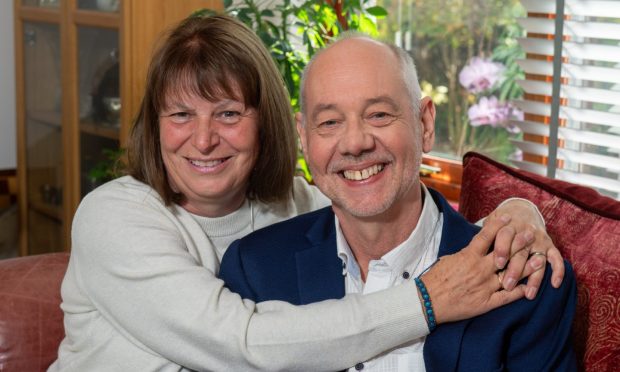
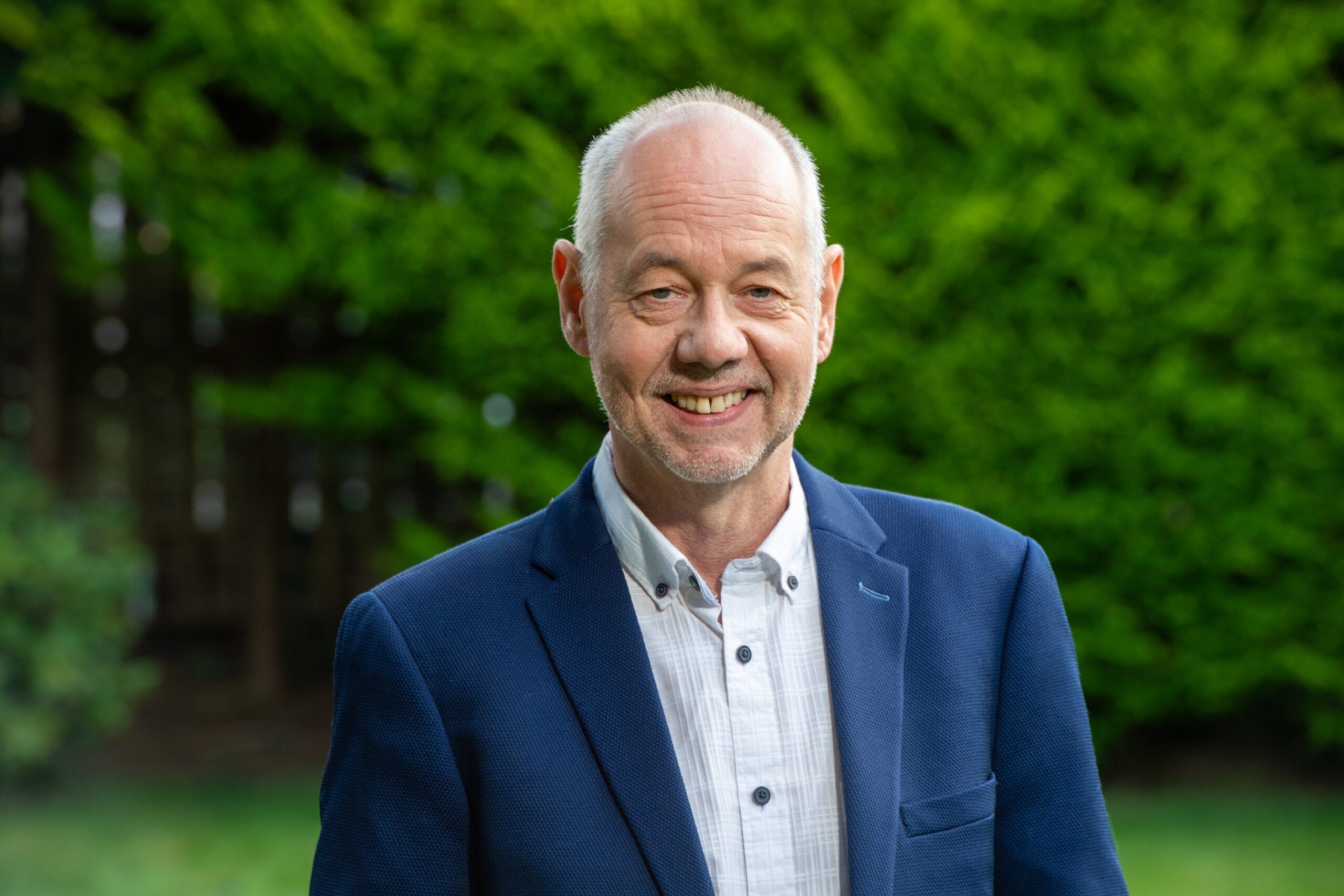
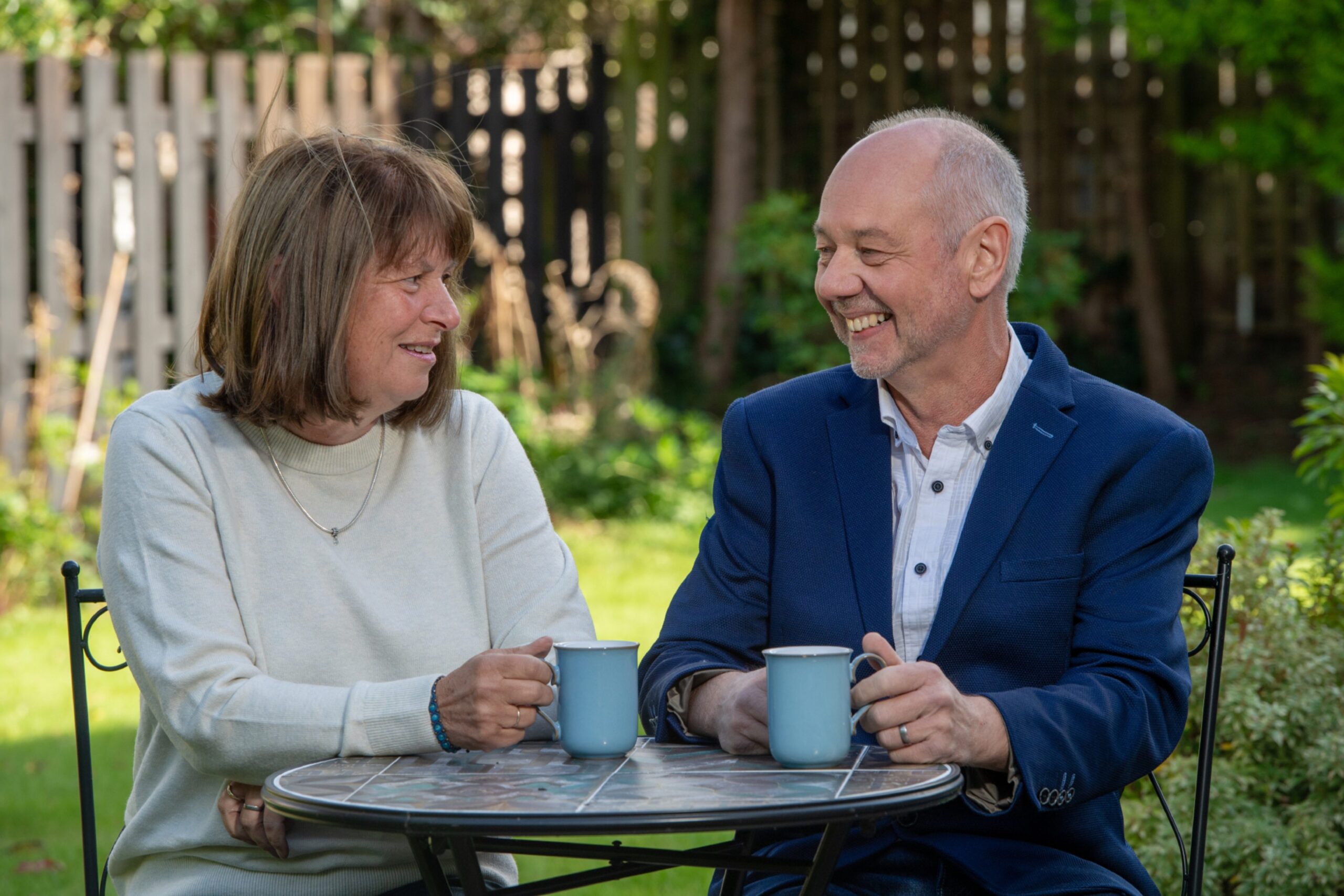
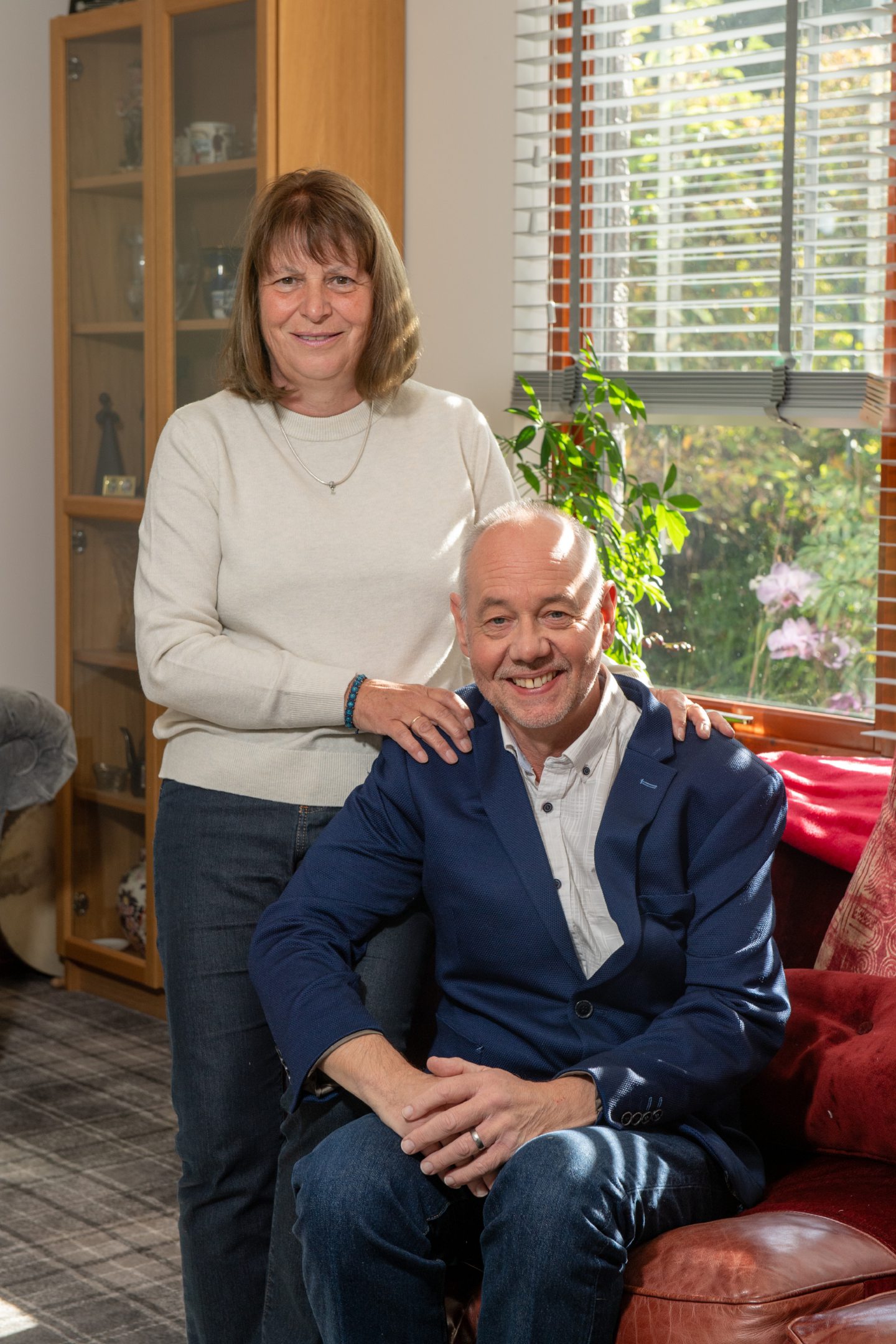
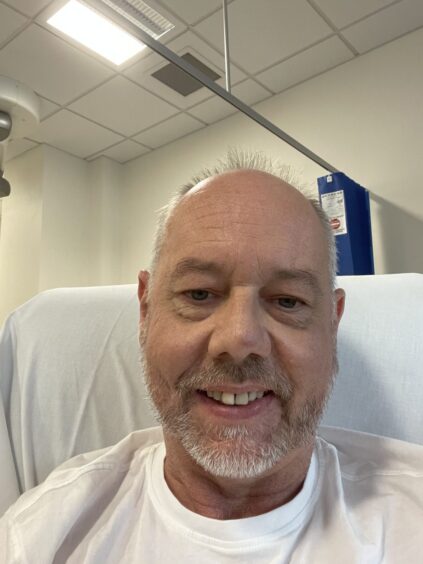
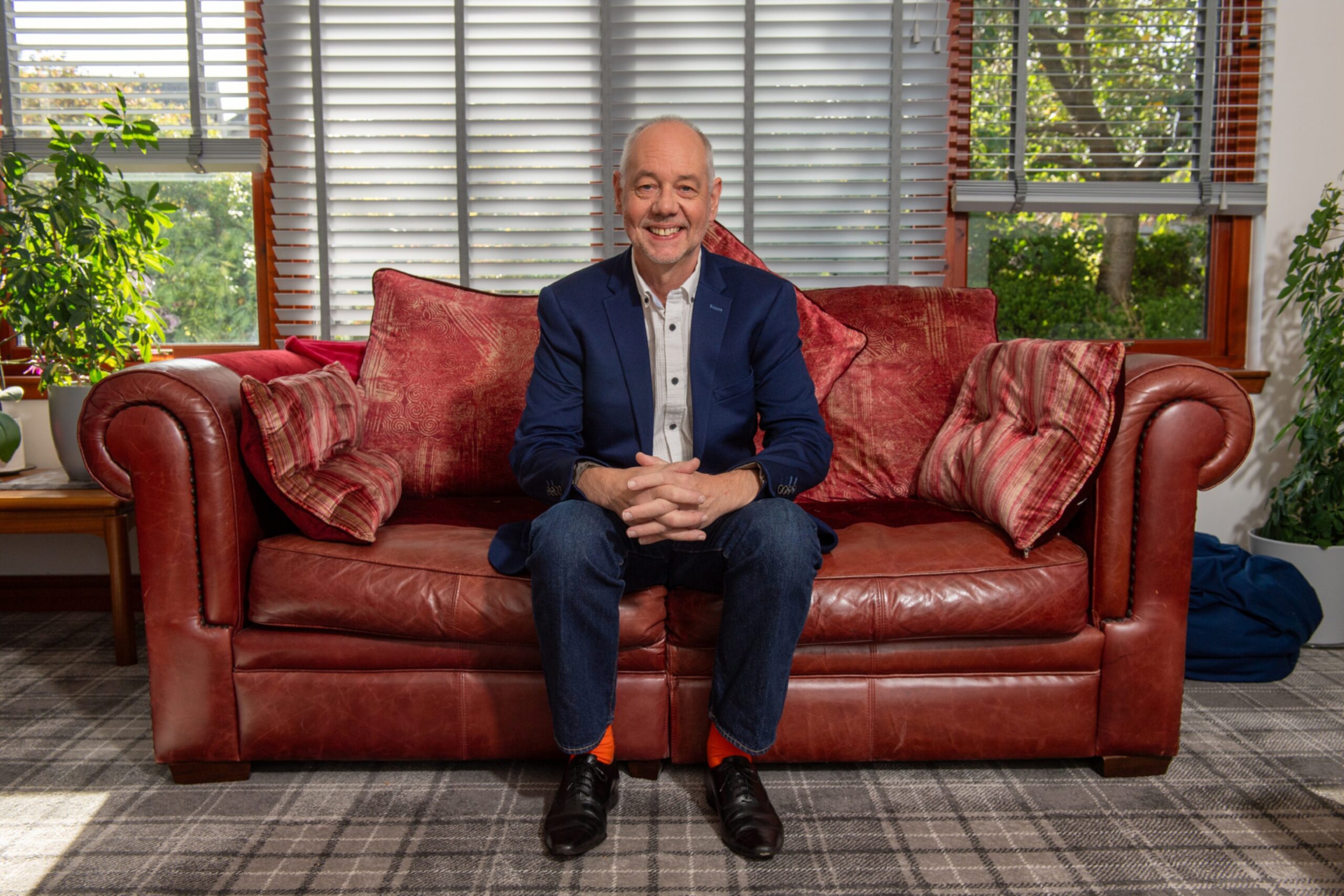
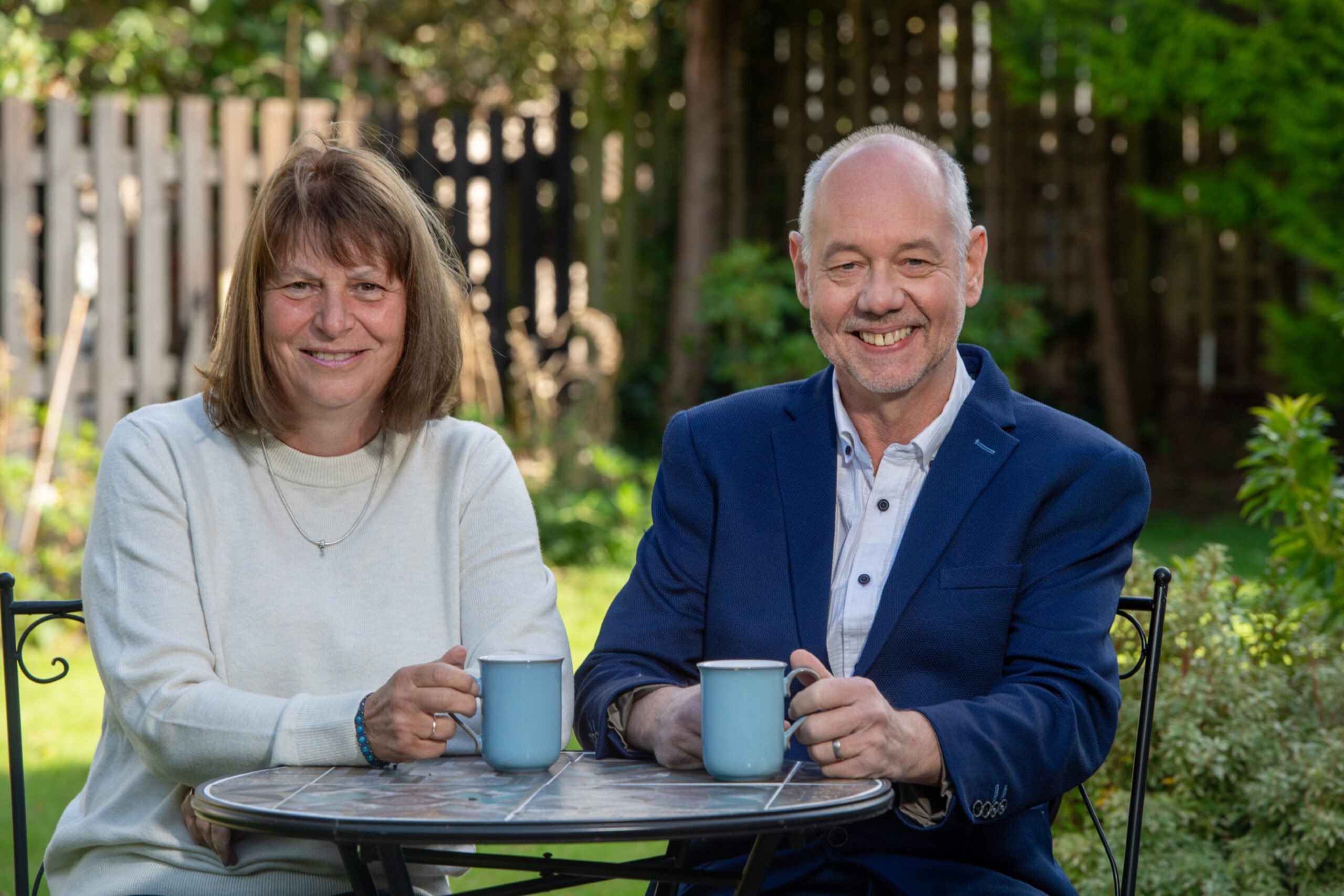
Conversation